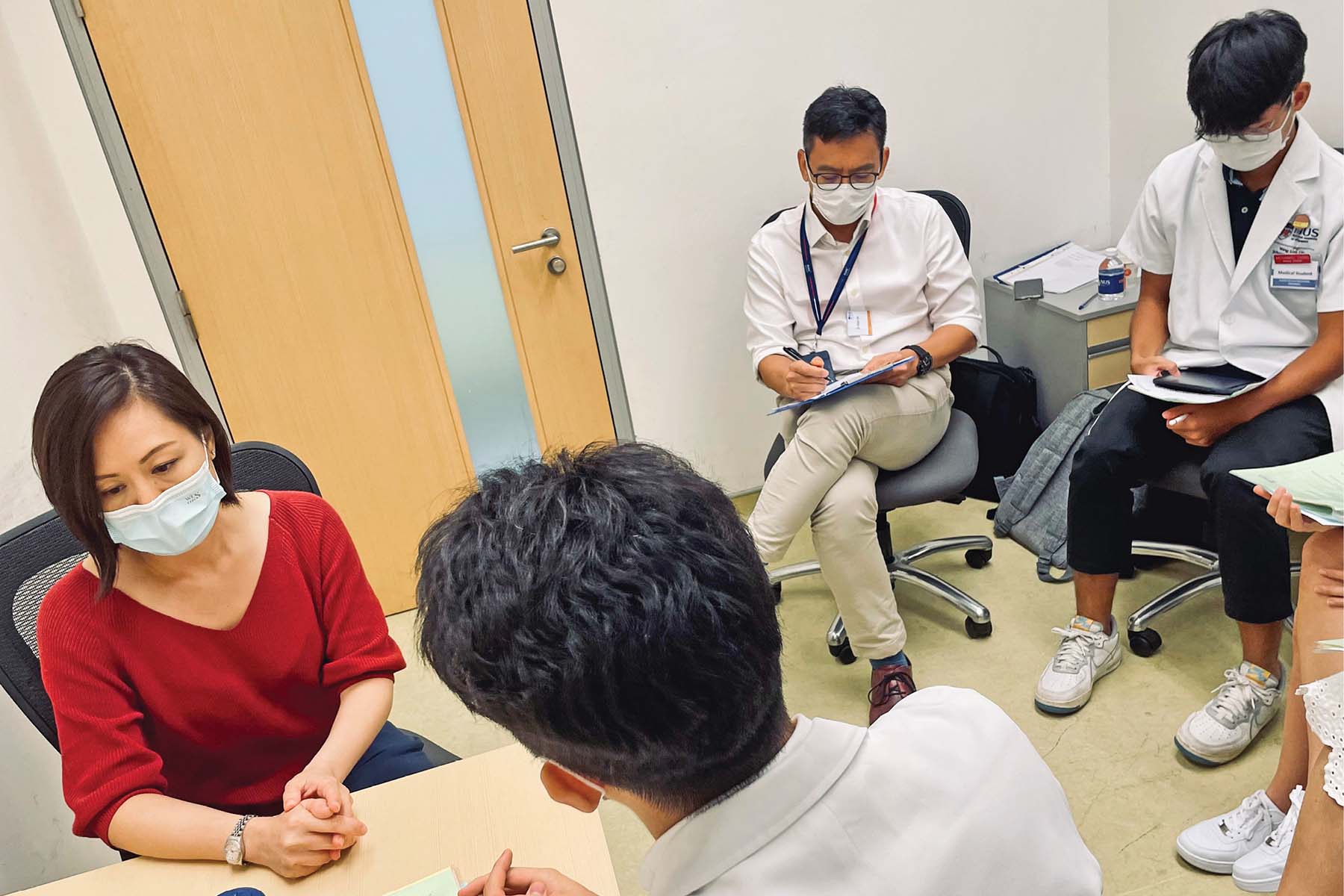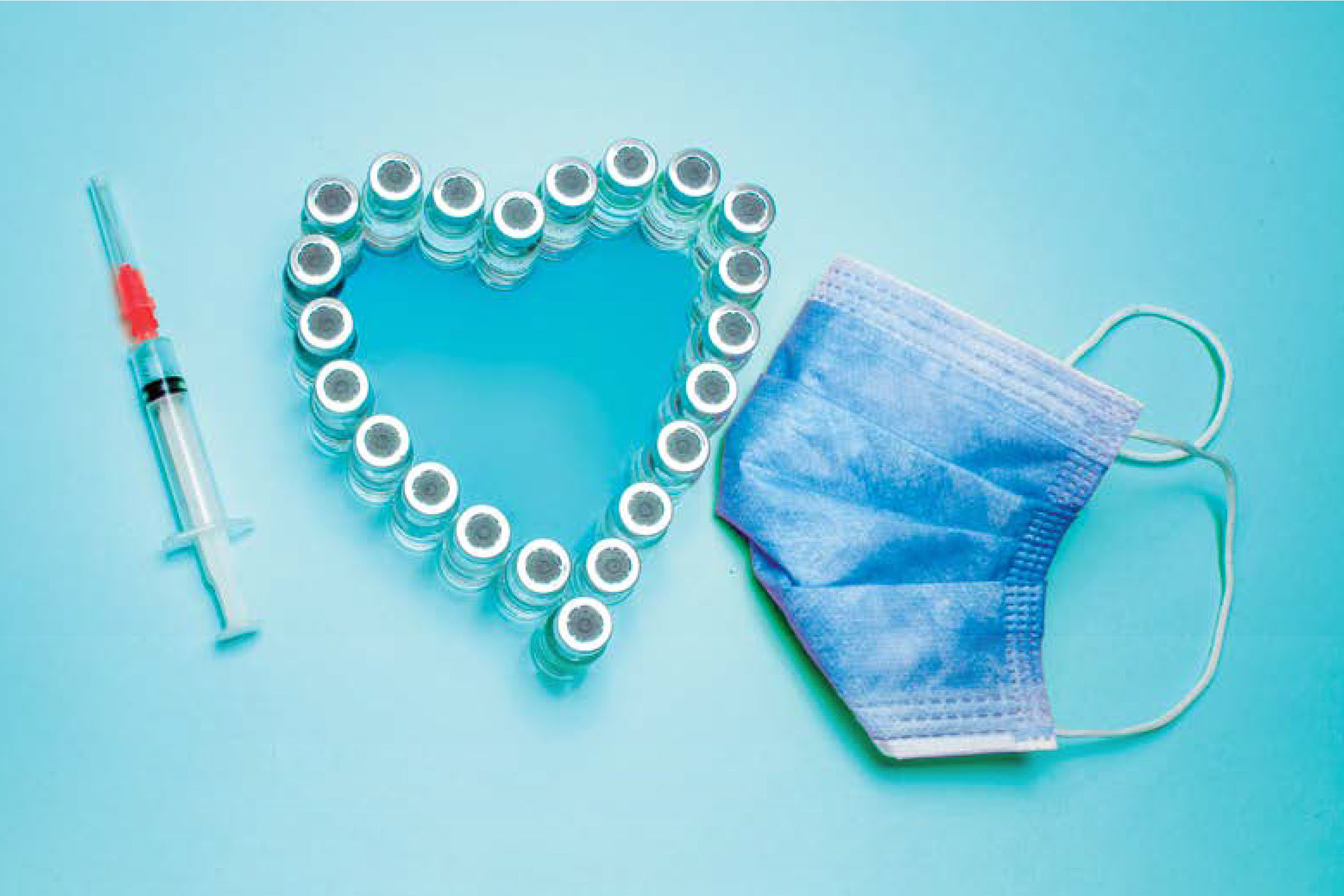
Issue 43 / August 2022
Alumni Voices
In and Out of Africa: Rediscovering life lived in service to others
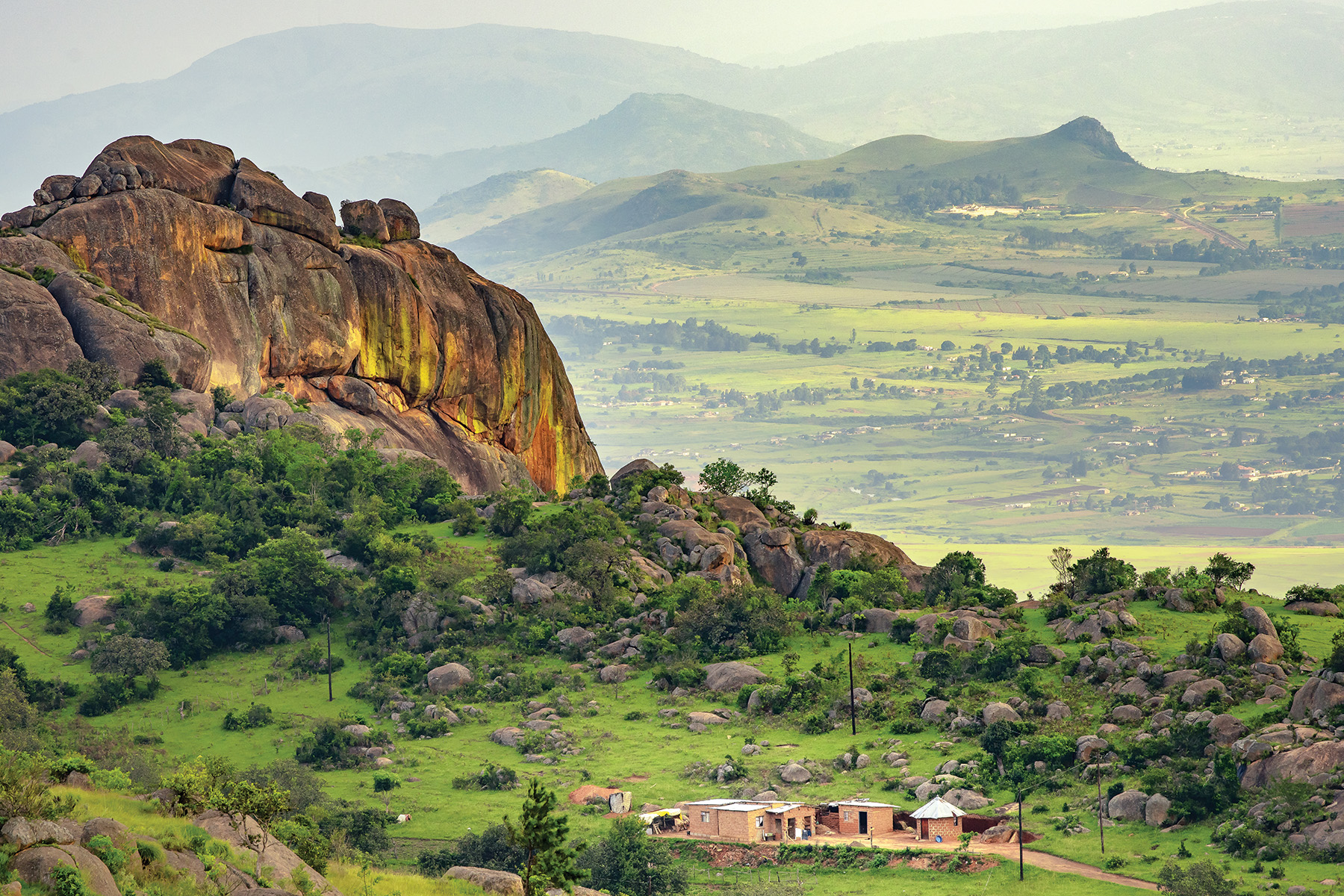
In responding to a call to go to Eswatini to help with Covid-19 management efforts as part of a UNICEF team, alumna Dr Tam Wai Jia (Class of 2011) rediscovers the meaning of life that is lived in service to others.
re you kidding me?”
When I first saw the email, that was my reaction.
Deep inside, I knew I wanted to respond to the call for humanitarian assistance for the COVID-19 crisis in Africa by UNICEF, GOARN (Global Outbreak Alert Response Network) and the World Health Organization. My mentor, Professor Dale Fisher had forwarded it to me.
Yet, as a young mother who co-homeschool our two toddlers with my husband, it felt impossible—irresponsible even—to leave my family for six weeks and put myself in the middle of a multiple of unknowns. Where would they send me to? What would I do? Could I really be useful?
Those questions plagued me. I replied tersely, then tucked the email away.
Weeks passed. But the continual stirring to do more persisted.
The truth was—all my life, I had preached a message of risk to young medical students and Singaporean youth. Take the leap, step out in faith, take courage to serve others—these were my life messages. I’d even started an international non-profit called Kitesong Global that empowered youth to pursue their dreams to catalyse change in communities. Yet, when it came to my turn to say yes to an opportunity to make a substantial difference to communities that needed help, I let my own concerns get in the way.
Studies show that when we assess risks, we are biased towards what is familiar. Even if one’s risk of dying in a car accident is greater than that in a plane, most people would prefer to drive. In Susan David’s bestselling book “Emotional Agility”, she says the curse of comfort is when our brains confuse safety with comfort. If something feels new, difficult or even slightly incoherent, fear kicks in.
I was petrified.
Yet, the more time went by, the more intense the nudging inside of me became.
But surely my cancer-surviving, immunocompromised husband would say no. Surely this was illogical. Surely, this was not a wise decision.
“All my life, I had dreamt of making a difference in underserved communities. Since the age of 18, I had been involved in philanthropy, advocacy and humanitarian work in developing countries all over the world, raising up to a million dollars for underprivileged communities. Yet, when it came to answering a call where my level of skill finally matched up to making a significant impact, I turned away.”
Yet, a still small voice continued to whisper to me, that this is the mirage of security. Much of our lives is a hypocrisy we buy into that the decisions we make based on our perceived levels of safety and comfort really are for the best, when in fact, we merely buy into a sense of security that doesn’t even exist.
Weeks after I received that email, I finally showed it to my husband.
“Of course, you should say yes!”
“What?” I shot back. “Do you know what you’re saying?”
“Well, at least offer yourself, no?”
Walking the talk
I knew he was right. All my life, I had dreamt of making a difference in underserved communities. Since the age of 18, I had been involved in philanthropy, advocacy and humanitarian work in developing countries all over the world, raising up to a million dollars for underprivileged communities. Yet, when it came to answering a call where my level of skill finally matched up to making a significant impact, I turned away.
There was too much uncertainty. I feared the unknown.
Drawing a deep breath, I said yes. Submitting my CV felt like turning in a blank cheque.
For days, I awoke at 4am, mind churning, wondering what it was that I had done. Would I be sent to a war-torn area? Would I be in a tent? Would I get along with the other specialist-consultants?
The news came. When I read the words “The Republic of Congo,” my heart stopped.
I kept it folded like a secret. Perhaps if I didn’t tell my husband, I could ignore the call again.
Reading me like a book, he said, “They’ve told you, haven’t they?”
“Yup. It’s Congo.”
“What?”
We parted for the day. With him needing time to process the big news, I took my two toddlers to the zoo.
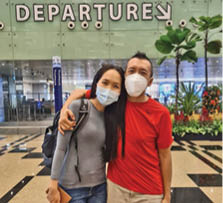
When he picked us up in the afternoon, he had tears in his eyes. “It’s hard for me to say this. But I do think you need to go. People will blame me for letting you go, but the question that’s been on my heart is, with people in need, how can you not go? This is what you’ve been training to do, all your life. You’re made for it.”
I said yes.
In a twist of events, I received news two days later that because I did not speak French, it was not a good match. Would I be willing to give technical support remotely from home?
By this time, with surrendered heart, I said no. If I was going to be deployed, I was now willing to give 100%, in-person support.
Christmas came and passed with no news. I packed a suitcase, without knowing where I’d be deployed to, prepping my 4- and 2-year-olds mentally for Mama’s big trip away.
Then the big news came. Eswatini. Where was that? What was it like? I had no idea. I had days to leave.
Yet, with my luggage all packed and my family mentally prepared, I was ready to go.
On the ground with UNICEF
The rolling hills of beautiful Eswatini took my breath away.
Even more so, was the beautiful hospitality and heart of the local people. Naming me “Sibusissiwe”, I felt honoured to discover it meant “we are blessed because of you”.
Overwhelmed by the tasks ahead to increase vaccination rates from 33%, we hit the ground running. All at once, all the skills I had picked up leading the Risk Communication and Community Engagement efforts among the migrant worker COVID-19 outbreak in Singapore kicked in.
In January 2022, only 38.8% of the total eligible population in Eswatini had been fully vaccinated. The age groups with the highest proportion of people fully vaccinated was 60+ and 50-59 with 69.6% and 69.4% respectively. However, numbers fully vaccinated within the 18-19 age group were 23.2% and those within 12-17 years were 6.5%. Of the 18,462 healthcare workers, approximately, 78.6% were fully vaccinated, with the remaining resisting vaccination efforts.
In January 2022,
only
38.8%
of the total eligible
population in
Eswatini had been
fully vaccinated.
Given the vulnerability of the elderly population, the high-risk exposure of health workers to COVID-19, and the large percentage of unvaccinated young persons, the team identified the priority groups as the vulnerable elderly, health workers and young people.
As the weeks went by, I supported the national Risk Communication and Community Engagement (RCCE) Coordinator to convene, conduct a mapping and mobilise participation of strategic partners to support the promotion of the COVID-19 vaccination plan. I catalysed collaborations with the UNICEF Eswatini consultant to support the national RCCE working group meetings, helping to strengthen coordination mechanisms to strengthen linkages between government and implementing partners.
Using a social and behavioural assessment that I customised and contextualised for the elderly, youth and health workers in Eswatini, we identified barriers which informed the vaccine uptake, working closely with various regional stakeholders.
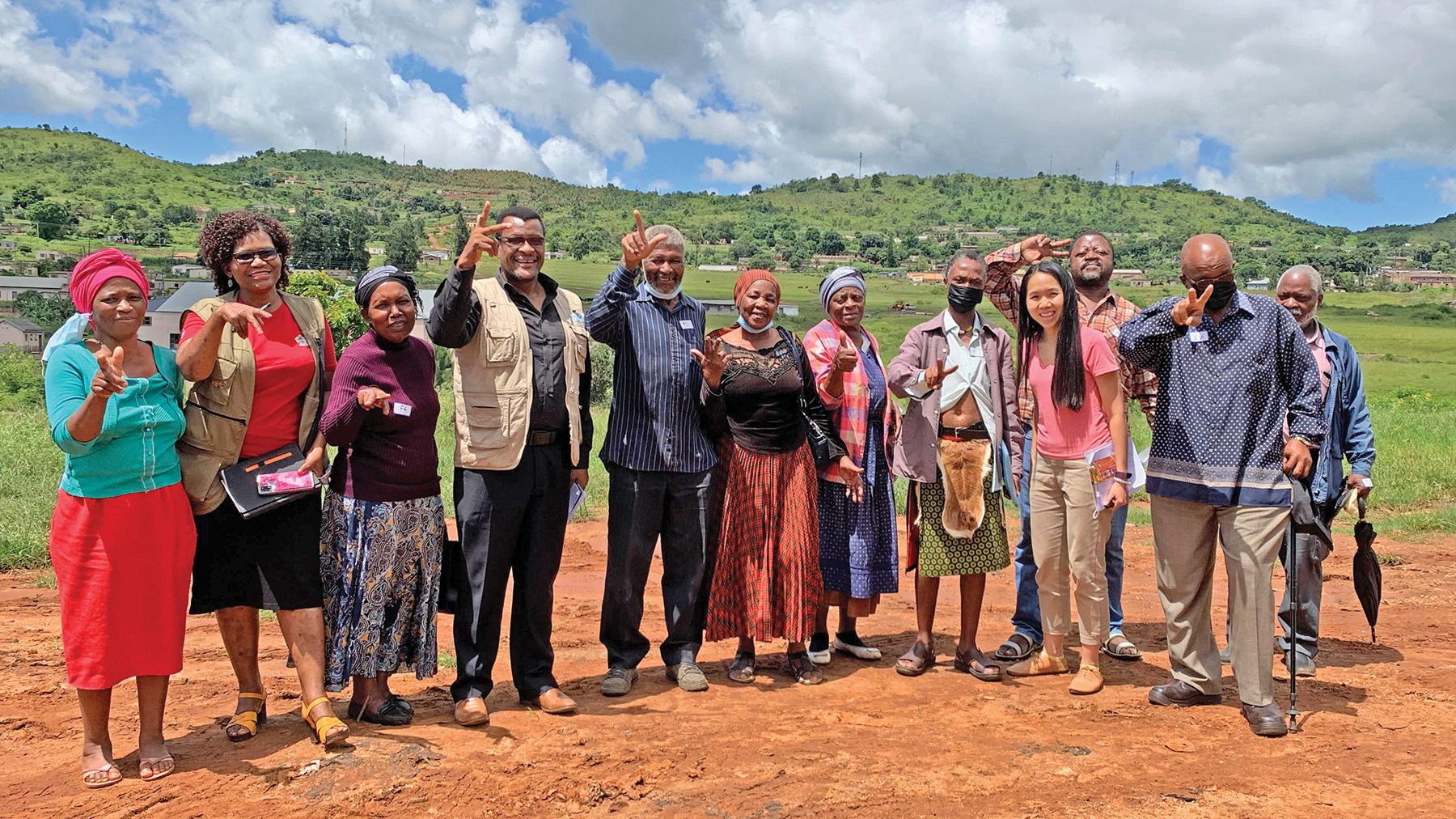
Sibusissiwe (Dr Tam Wai Jia) visiting rural villages to conduct focus group discussions and engaging village chiefs in the vaccination exercise.
Developing research tools and recommendations, capturing best practices, building capacity of various on-ground community leaders and strengthening coordination with Ministry of Health and other key stakeholders felt like second nature. All at once, 11 years of seemingly incoherent work in rotating through surgery, general medicine, health promotion and my pursuing a Master of Public Health at Johns Hopkins converged and aligned. As I worked with the local team to develop a training plan to enhance the capacity of Rural Health Motivators, volunteers, faith leaders and other community mobilisers and influencers to collect feedback and promote confidence in the vaccination programme, we saw our goals checked off one by one as time passed.
In collaboration with the ESARO (East and Southern Africa Regional Office), Social and Behaviour Change data analyst and the Social Behavioural Change Project manager for COVID-19 vaccines, I helped analyse the findings of the rapid assessment and produce a Data for Action brief with key insights and programmatic actions, including revised messages and actions to promote vaccination confidence. The field visits oragnised enabled me to capture and document examples of RCCE best practices, including community-driven approaches to COVID-19 prevention and management and share three case studies for dissemination in the region to promote learning and research-based implementation.
“I learnt, that when we do the hard work of clarifying our values, when we give wholly of ourselves to others, whatever we perceived as loss in pursuit of our goals, becomes received back as gifts back to us.”
I was privileged to develop a training plan and curriculum to enhance the capacity of Rural Health Motivators, Red Cross Volunteers, religious leaders and other community mobilisers and influencers to collect feedback and promote confidence in and adherence to the vaccination programme.
Over the course of the deployment, public health gaps identified included limited, infrequent and irregular data about vaccine confidence, trust, social processes and detailed data on disaggregated groups such as the elderly, health workers and youth. While a text message poll called U-report was encouraged as a means to collate information on people’s knowledge, attitudes and perceptions of COVID-19, it was difficult to reach the elderly and health workers, as young people were the main users of the phone poll. As such, I led our team to conduct several focus group discussions with various subgroups.
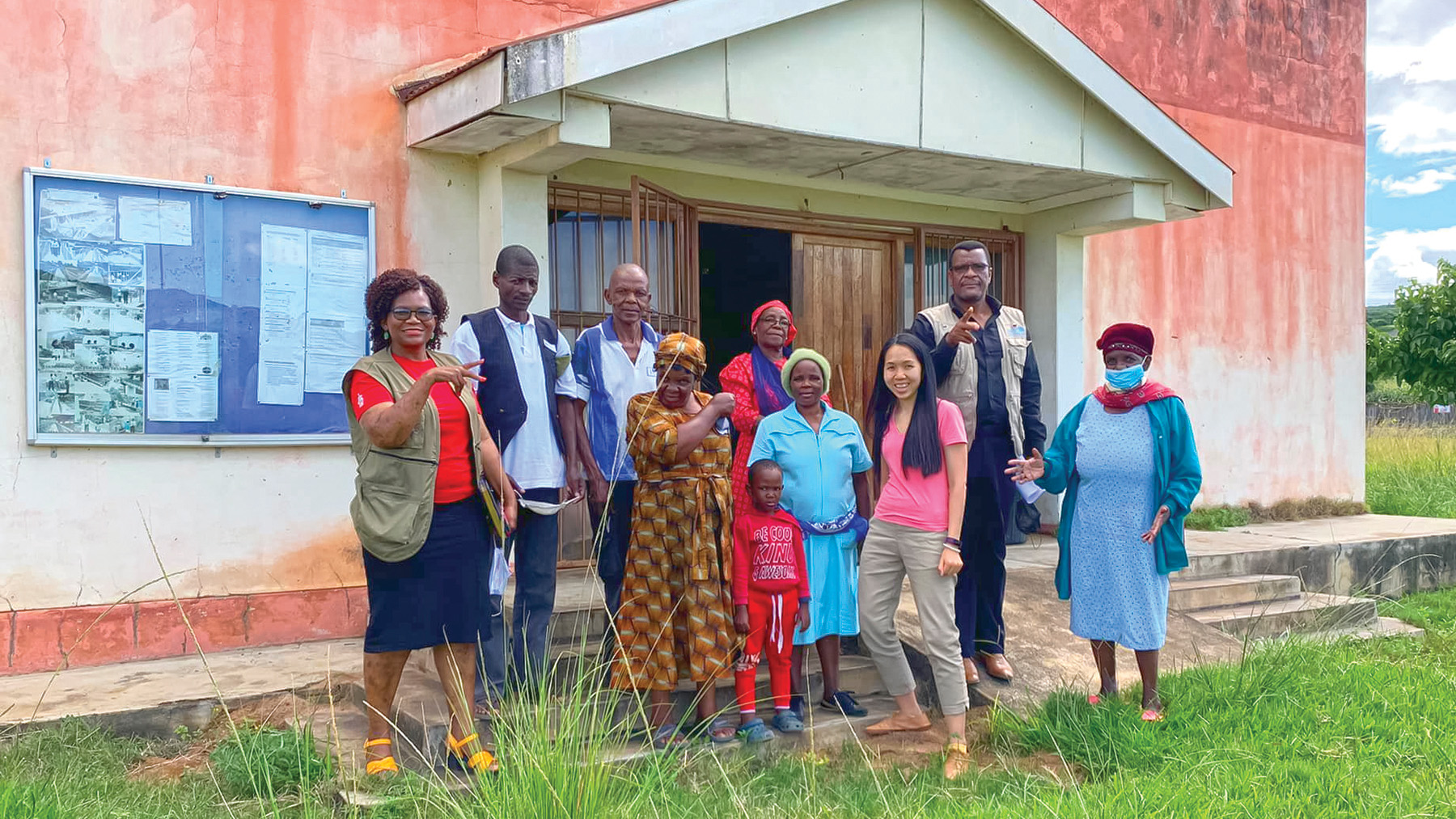
To accurately assess the knowledge, attitudes and perceptions of the elderly, health workers and youth, I thus led the team using a mixed method assessment of quantitative surveys via U-report and a series of focus group discussions with each of the three groups. These were then used to inform programmatic recommendations.
A detailed policy brief with policy and programmatic recomendations were presented to the Ministry of Health and UNICEF Eswatini, advocacy meetings to present evidence-based key recommendations to Regional Stakeholders and Health Promotion Board, sensitisation meetings with Regional leaders to activate social mobilisers in different regions, and involving over a dozen youth stakeholders in regular steering Committee meetings to ensure strategy alignment, sharing of resources and training facilitators and champions to create a community-led campaign for Eswatini—were outcomes of the six-week deployment.
Insights
On my birthday, as I turned 35 in Eswatini, I received a voice note from a mentor who said, “Although this might feel like a huge sacrifice, I know it’ll become a huge gift back to you.”
He knew, that to be in Eswatini, I had missed my firstborn’s 5th birthday, her first day at school, my own birthday and the Lunar New Year.
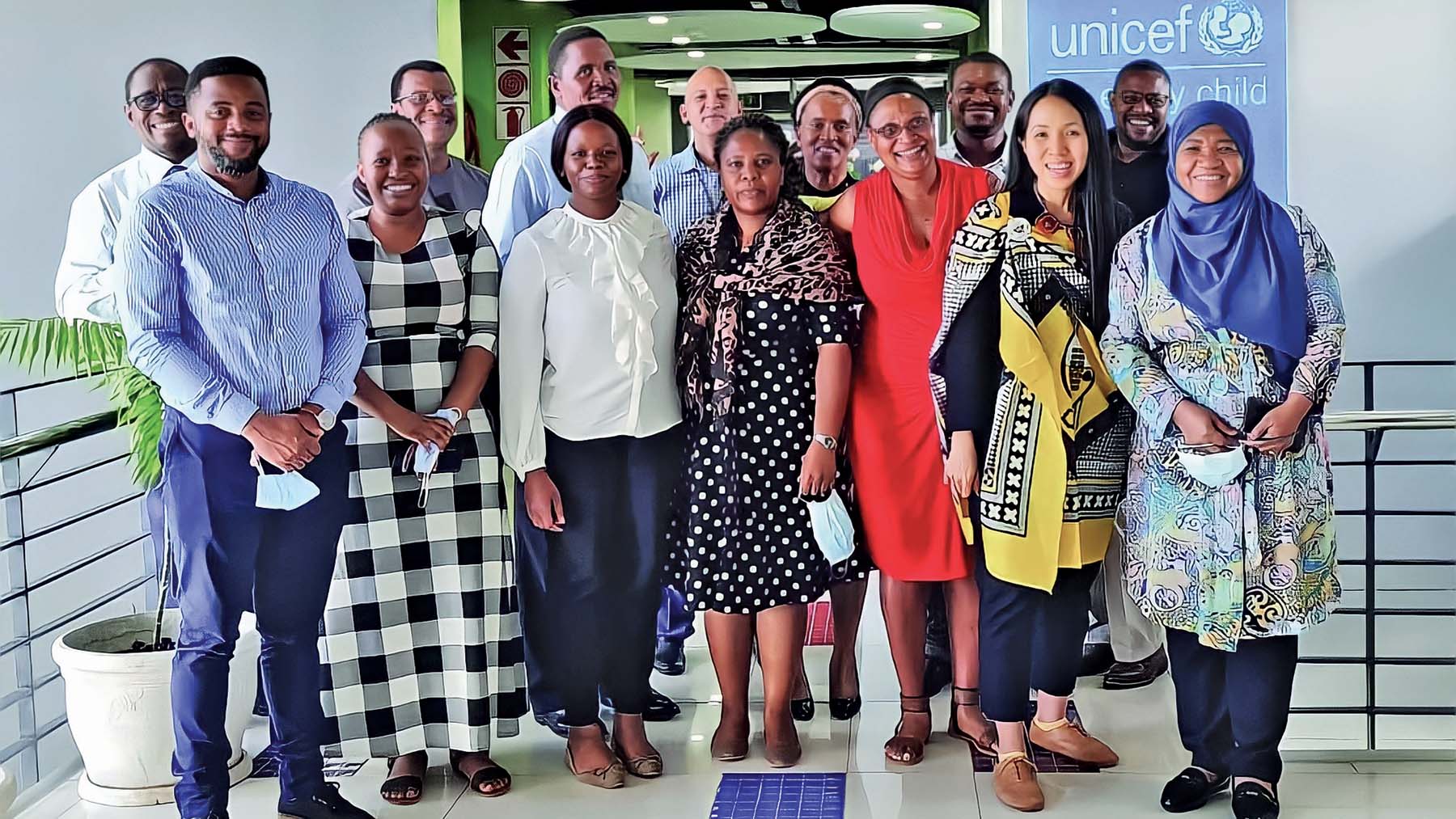
Farewell by UNICEF Eswatini: Dr Tam sports the Lihiya, a traditional wrap-dress.
With uncanny coincidence, I was invited to train 80 rural health mobilisers from cross-sectoral organisations on my birthday. As I taught, implementing and exercising the skills I had gained over the years, I discovered that I was indeed gifted with the memorable opportunity not only to serve, but to receive the gift of identity and calling.
As I looked back, I treasured the opportunity to confront my initial fears, to step out in spite of it, and to work out the why of my life—to serve others. I learnt that courage is not the absence of fear, but walking in spite of it. Faith is not the absence of uncertainty, but stepping out in spite of it.
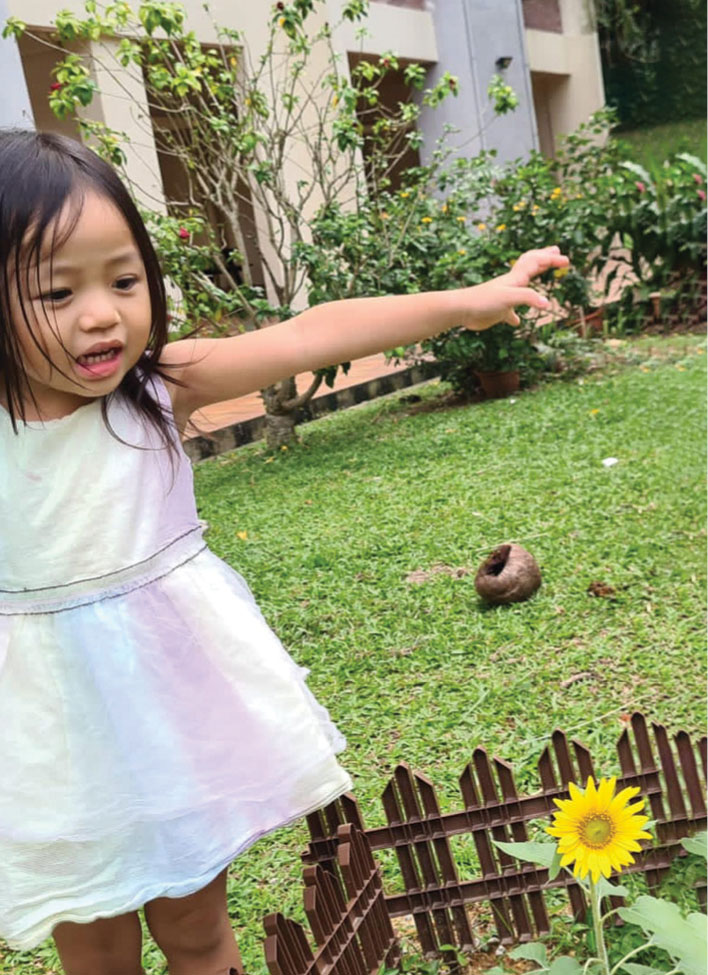
The sunflower her girls had planted as a seed just before she left.
Our lives, when lived showing up to our fears and uncertainties, become lives lived true to our innermost callings.
As Susan David says, “Discomfort is the admission price to a meaningful life.”
On the last day of my time in Eswatini, my neighbour in Singapore, unaware that it was the final day of my stint, sent me a photo. It was a sunflower, planted as a seed by my daughters before I had left, which had chosen to bloom on my last day in Africa.
It spoke to me, that what we sow in tears, will be reaped with joy.
I learnt, that when we do the hard work of clarifying our values, when we give wholly of ourselves to others, whatever we perceived as loss in pursuit of our goals, becomes received back as gifts back to us.
And perhaps the greatest gift of all, is the gift of identity.
or when we discover the “why” of what we do, then go ahead and do what we do in spite of our fears, anxieties and circumstances, we live the lives we were always meant to live, to fulfill our true calling.

